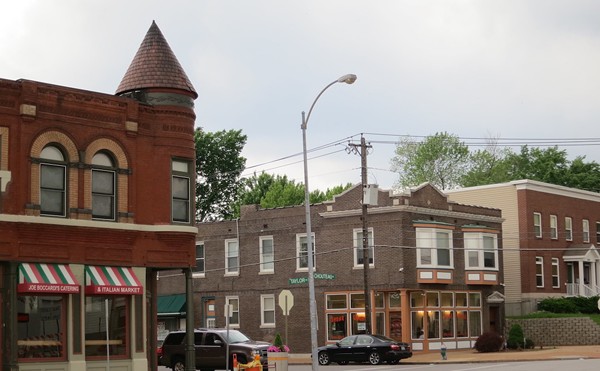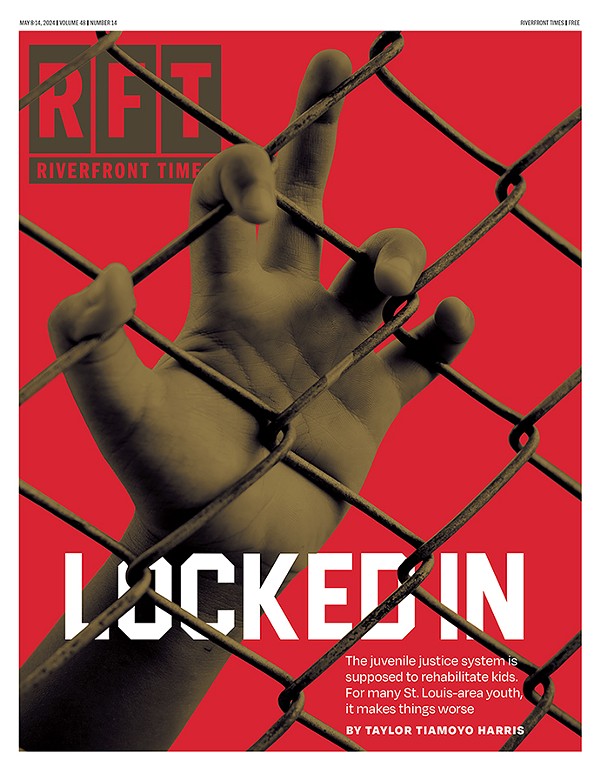"Students may not always remember everything that we teach," writes Lloyd Washington, "but they will never forget how we treat them."
He's right -- students never forget how they've been treated.
That's why a St. Louis grand jury indicted Washington on June 14, charging him with a Class A misdemeanor for "failing to report suspicions of sexual abuse or neglect."
The jurors found that Washington, an educator with 31 years' experience in the St. Louis Public Schools, had "reasonable cause to suspect that a child at Patrick Henry Elementary School had been subjected to abuse [yet] knowingly failed to report this reasonable suspicion ... to the Missouri Division of Family Services."
Washington could not be reached for comment. Calls to school officials were referred to school-board attorney Kenneth Brostron.
"The board has directed me to do an investigation," says Brostron, "but we have not talked to anybody yet because the circuit attorney didn't want us talking to potential witnesses."
Washington's slim case file has already caused quite a stir in the municipal courts. Missouri law mandates educators to report any suspicions of abuse or neglect to trained investigators at the Division of Family Services. But to the best of Circuit Attorney Jennifer Joyce's knowledge, this is the first time anyone has been charged with failing to do so.
"There was no charge code; we had to write up our own indictment," says Joyce.
"It's a very underenforced law," she says, "and it's a good law. It's on the books for a reason."
Lloyd Washington's name first drew prosecutors' attention this spring, when they launched an intense investigation into abusive priests and skeletons started tumbling out of closets. Their probe followed press accounts of bad priests, including reports about James Beine, a former St. Louis-area priest who'd been named as an abuser in several lawsuits.
The St. Louis Post-Dispatch reported that in the late 1990s, the Roman Catholic Archdiocese of St. Louis paid $110,000 to settle two lawsuits alleging that Beine, as a priest, had sexually abused two men. Six other lawsuits against Beine made similar allegations. What made the story explosive was the revelation that Beine, who'd been defrocked as a priest back in 1977, had worked for eleven St. Louis schools since 1991 -- and, for the past two years, served as a counselor at Patrick Henry Elementary.
On March 19, St. Louis Public Schools Superintendent Cleveland Hammonds Jr. suspended Beine. And as the schools sought to control the public-relations damage, school spokesman Chester Edmonds called Washington, Beine's most recent supervisor, to make sure there had been no recent hints of wrongdoing. Washington assured him there had been none.
But Washington didn't tell Edmonds about Stephanie Davis, a teacher who had put a complaint about Beine in writing less than a year before, noting: "I have observed Dr. James [Beine changed his name legally to Mar James in 1999] fondling young boys and urging them to tickle him on various parts of his body." Washington attributed Davis' report to a personality conflict and reprimanded her for unprofessional conduct.
Washington also failed to tell Edmonds about two mothers of Patrick Henry students who complained about Beine. One said he had exposed himself to her little boys in the restroom; the other said her son told her that Beine pretended to urinate and stared at the boys' private parts.
Faced with those allegations from concerned parents, this is what Washington did:
He announced that staff members were no longer to use student bathrooms.
Even after Beine's suspension, Washington described him to the press as an excellent counselor, popular with students and teachers alike.
Beine was found by police March 28, huddled under a blanket in a second-floor closet of the home he rented in Highland, Illinois. He's now in jail, awaiting trial on four felony counts. Beine is accusing of exposing his genitals to three boys at Patrick Henry Elementary.
Beine's attorney, James Martin, filed a motion to dismiss, saying the school had assigned Beine to monitor the boys' restroom and he'd simply urinated alongside the boys. Martin called the charges "overblown and overexaggerated."
Beine has since been indicted on an additional, federal charge: possession of child pornography. Police seized a CD containing hundreds of images of children under age eighteen engaged in sexually explicit conduct.
Members of the St. Louis school board first voted not to investigate Beine's eleven-year tenure, but they have since changed their minds.
In Beine's personnel file, they found a copy of a 1994 Post-Dispatch article about lawsuits filed against Beine for sexual abuse in the 1970s, before he was dismissed from the priesthood in 1977.
In June 1994, after the archdiocese announced that eight lawsuits had been filed against Beine, he was removed from his counseling position at Bryan Hill Elementary and put to work in library services. But the next September, he showed up as a counselor at Cote Brilliante Elementary, and from there he transferred to a series of counseling jobs within the system.
"You'd think someone would have had the sense to look in the file," says board member Bill Haas. "There's a proverb: 'The only thing you need for evil to survive is for good people to do nothing.'
"I'm sad to see that one of our administrators has been indicted," he continues. "I'm sure it was not intentional. [But] when you have allegations of misconduct with children, you report them."
The maximum penalty for a misdemeanor is one year in prison, but Joyce says that if Washington is found guilty, "he'll most likely get probation. The judge might assess a fine or set some condition of probation, such as community service."
He already serves as an example: perhaps the first educator in Missouri to be charged with failing to report sexual abuse.
"The reason for the law is very clear," Joyce says. "It's to protect kids. I don't want anything to be swept under the rug."





